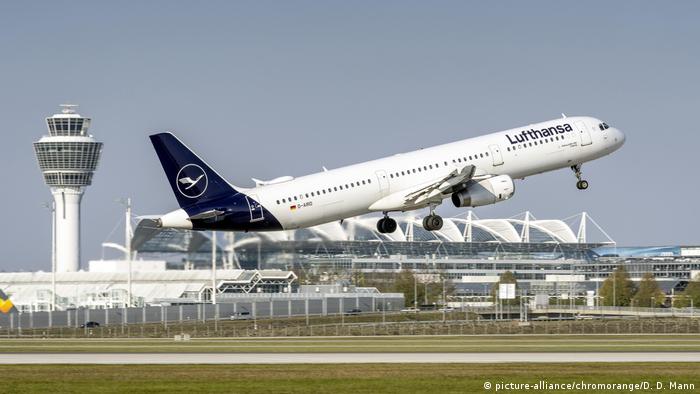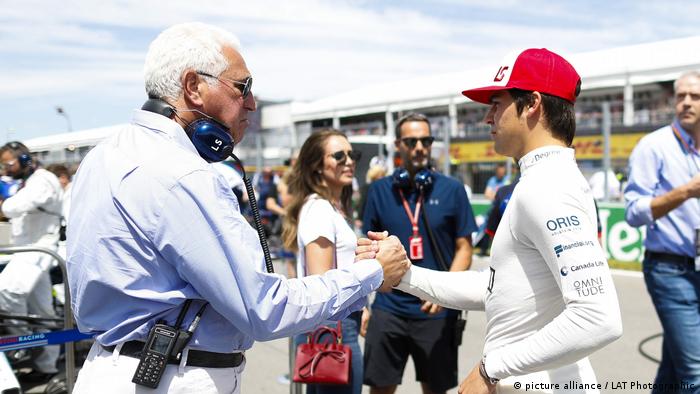It’s possible that I shall make an ass of myself. But in that case one can always get out of it with a little dialectic. I have, of course, so worded my proposition as to be right either way (K.Marx, Letter to F.Engels on the Indian Mutiny)
Saturday, February 01, 2020
Opinion: Little Britain drifts into insignificance
And so it's official. The UK can have its cake crumbs and eat them. The divorce proceedings with the EU have been tortuous, but they're likely to pale in comparison with what lies ahead for the UK, writes Rob Mudge.

Just over three and a half years ago, on the morning of June 23, 2016, I forced myself to forego my daily news junkie ritual of checking my constant news feed drip and traveled into work blissfully unaware at that stage of what had happened.
I had prepared two opinion pieces for the day. One for the highly unlikely event that the UK had voted to leave the EU, the other that we would — naturally — be remaining in the bloc.
Read more: Opinion: Game over for Brussels, UK
I'm no friend of using these terms lightly, but I really was in a state of shock when I walked into the newsroom. My German colleagues told me later that I looked as if I'd seen a ghost.
Over the past couple of years the Brexit apparition has taken on a corporeal form. Even then I — naively as it turns out — clung to the hope that the country would come to its senses and reverse the decision. While friends and colleagues around me were applying for German citizenship, I put it off more or less until the last moment.
The empire strikes back
While I fully accept the outcome of a democratic vote, I still refuse to acknowledge the process that got us here: a plot based on misconceptions, lies and disinformation. Many of those who had the wool pulled over their eyes by the solipsistic and self-serving leaders, from Brexit architect David Cameron to current Prime Minister Boris Johnson, are proponents of a UK stuck in the past. The notion that a nation that once boasted an empire of colonies that it oppressed needed to rid itself of the EU's shackles is ludicrous.
Those rules and regulations so despised by government figures both past and present were shaped and formed in some form or another by the UK. And if it didn't like them, it opted out. No other EU member state has enjoyed so many exemptions and rebates.
The EU is not perfect, far from it. But to think that the UK will get a better deal with EU member states and other leading competitors is delusional. So far the UK has signed so-called continuity deals with countries such as Liechtenstein, the Faroe Islands, Georgia and Lebanon, to name but a few.
No disrespect intended, but they aren't exactly economic powerhouses. No need to panic just yet though. Former Trade Secretary Liam "the-trade-deal-with-the-EU-should-be-one-of-the-easiest-in-human-history" Fox said at the time that he had 40 deals lined up to be signed the "second" after Brexit with, er, hang on, I'm trying to find that list ...
How attractive to outside investors is a country that is hemorrhaging key industries and services as a result of Brexit? It doesn't take rocket science to figure out why leading carmakers are shutting plants and moving to mainland Europe, or why key financial operators are moving to Paris and Amsterdam. Not to mention the brain drain when EU nationals who have been working in science and education pack their bags and leave.
In vino veritas?
But fear not, there is hope. One of the government's Brexiteers living in a parallel universe is Brexit Secretary Steve Barclay. He said recently that 99% of wine consumed in the UK is imported. Once the UK leaves the EU, however, this "vital sector" would be able to thrive. I am not making this up. Two things: Has he ever paused to wonder why all that wine is imported? And since when has the UK's wine-making industry been a "vital sector?"
Let's take the level of ignorance one step further. And again, you couldn't make this up. Brexit MEP June Mummery recently had an epiphany. She tweeted that once the UK leaves the EU it will no longer have representation in Brussels on fishing policy. If irony wasn't dead already, this would be its death knell (She could always check whether Johnson has some kippers stashed away in a fridge somewhere).
Brexit will leave Britain broken, a disunited kingdom. Geographically it has always been removed from continental Europe. That distance will become increasingly palpable politically, economically and socially.
I may not be around to see it (a mixed blessing, in a way), but I predict that within the next 20 years, the UK will come begging with its tail between its legs to rejoin the EU — but the terms then will be infinitely worse than those it enjoyed for so long.
DW's Rob Mudge is a British-born journalist living in Germany who has followed Brexit developments with great trepidation.
Lufthansa avoids strike in stop-gap deal with union
The German airline has agreed to a one-time payment and longer stop overs in long-haul destinations. The two parties said strikes will be called off pending further talks.

German cabin crew trade union Ufo and Lufthansa announced on Friday that strikes would be avoided for the time being, after agreeing on dates for further talks. Cabin crew workers are seeking better pay and working conditions.
A Lufthansa spokeswoman said that the union had agreed that there would be no strikes on any of the group's airlines, which includes Eurowings and Austrian Airlines, until at least the end of the next round of negotiations.
In a joint statement, both parties said that there was an agreement to give some 22,000 cabin crew personnel a one-off payment of an extra €1,500 ($1,660) in their next paycheck. The firm is also already putting in place one of the union's demands, longer stop overs in long-haul destinations like Japan and South Korea.
Strikes in quick succession
In November and December, Lufthansa and Eurowings were forced to cancel hundreds of flights and strand thousands of passengers during three short strikes organized by Ufo.
The union is not only seeking raises for employees, but other benefits like more security for temporary workers, who are often placed into longer, more difficult routes without the security of a long-term contract.
Both cabin crew and pilots for many airlines have complained in recent years that the competition from budget airlines has led to increasingly long hours under more stressful conditions and without adequate compensation.
es/rt (dpa, Reuters)
Aston Martin rescued by Canadian billionaire Lawrence StrollCanadian billionaire Lawrence Stroll will lead a consortium hoping to pump around $650 million into the struggling sports car manufacturer. He will also use the Aston Martin name for the F1 team his son Lance drives for.

Canada's billionaire supercar enthusiast Lawrence Stroll is leading a consortium of investors which will claim a 16.7% stake in the company in return for a direct investment of 182 million pounds ($240 million, €216 million). This could rise to a 20% share upon completion of a plan for the company and the investors to raise a total of around 500 million pounds indirectly, in large part via a rights issue from existing shareholders.
Stroll will also become an executive chairman at Aston Martin as part of the takeover.
Aston Martin's shares, which had nosedived since the company's 2018 IPO, surged by almost 30% after the announcement before shedding some of those initial gains later in Friday's trading. Even after this rally, though, the stock was still trading at around one-third of the price it commanded last February. The small, British-based Aston Martin, which often buys its core components like engines and transmission systems from larger European manufacturers, had been struggling both with the economic and luxury car slowdown in China as well as with the ramifications of Brexit. The sports car specialist had sought to move into a new market by developing an SUV of its own, but is a relative latecomer to the marketplace.
Like several other car manufacturers concerned about just-in-time production chains crossing a number of borders, the company had openly warned the UK against a so-called hard Brexit. The company has changed hands multiple times over the years. It famously spent almost 20 years underneath the Ford umbrella starting in 1987, and is currently primarily owned by Italian and Kuwaiti private equity groups.

Aston Martin is perhaps best known as James Bond's carmaker of choice
Britain's mainly foreign-owned automotive sector is already feeling the heat of Brexit before the process even begins at midnight on Friday. Car production in the UK dived 14.2% to 1.3 million vehicles in 2019, the lowest annual level since 2010, figures released on Thursday showed.
Read more: Aston Martin is recreating James Bond's 'Goldfinger' DB5
Stroll to give the name to his son's F1 team
Although Lawrence Stroll made his fortune in fashion, he's been a car enthusiast and Ferrari collector for years.

His son, Lance Stroll, is a professional racing driver competing in Formula 1 for the Racing Point team (formerly known as Force India), which his father rescued from bankruptcy in 2018.
"He brings with him his experiences and access to his Formula 1 team," Aston Martin chief executive Andy Palmer told Reuters news agency. "We've talked a lot in the past few years about wanting to be clearly rooted in luxury and obviously Mr. Stroll knows an awful lot about luxury."
The Racing Point F1 Team will be renamed Aston Martin as a result of the takeover, starting in the 2021 season (all F1 team names are already formally submitted for the new season starting in March, and cannot be changed without financial ramifications).
The Red Bull team, which had a commercial partnership with Aston Martin, also announced on Friday that this would cease at the end of 2020.
Aston Martin had reportedly also been in talks with Chinese carmaker Geely prior to Friday's announcement of the Stroll-led rescue.
msh/kp (AFP, dpa, Reuters)

Canada's billionaire supercar enthusiast Lawrence Stroll is leading a consortium of investors which will claim a 16.7% stake in the company in return for a direct investment of 182 million pounds ($240 million, €216 million). This could rise to a 20% share upon completion of a plan for the company and the investors to raise a total of around 500 million pounds indirectly, in large part via a rights issue from existing shareholders.
Stroll will also become an executive chairman at Aston Martin as part of the takeover.
Aston Martin's shares, which had nosedived since the company's 2018 IPO, surged by almost 30% after the announcement before shedding some of those initial gains later in Friday's trading. Even after this rally, though, the stock was still trading at around one-third of the price it commanded last February. The small, British-based Aston Martin, which often buys its core components like engines and transmission systems from larger European manufacturers, had been struggling both with the economic and luxury car slowdown in China as well as with the ramifications of Brexit. The sports car specialist had sought to move into a new market by developing an SUV of its own, but is a relative latecomer to the marketplace.
Like several other car manufacturers concerned about just-in-time production chains crossing a number of borders, the company had openly warned the UK against a so-called hard Brexit. The company has changed hands multiple times over the years. It famously spent almost 20 years underneath the Ford umbrella starting in 1987, and is currently primarily owned by Italian and Kuwaiti private equity groups.

Aston Martin is perhaps best known as James Bond's carmaker of choice
Britain's mainly foreign-owned automotive sector is already feeling the heat of Brexit before the process even begins at midnight on Friday. Car production in the UK dived 14.2% to 1.3 million vehicles in 2019, the lowest annual level since 2010, figures released on Thursday showed.
Read more: Aston Martin is recreating James Bond's 'Goldfinger' DB5
Stroll to give the name to his son's F1 team
Although Lawrence Stroll made his fortune in fashion, he's been a car enthusiast and Ferrari collector for years.

His son, Lance Stroll, is a professional racing driver competing in Formula 1 for the Racing Point team (formerly known as Force India), which his father rescued from bankruptcy in 2018.
"He brings with him his experiences and access to his Formula 1 team," Aston Martin chief executive Andy Palmer told Reuters news agency. "We've talked a lot in the past few years about wanting to be clearly rooted in luxury and obviously Mr. Stroll knows an awful lot about luxury."
The Racing Point F1 Team will be renamed Aston Martin as a result of the takeover, starting in the 2021 season (all F1 team names are already formally submitted for the new season starting in March, and cannot be changed without financial ramifications).
The Red Bull team, which had a commercial partnership with Aston Martin, also announced on Friday that this would cease at the end of 2020.
Aston Martin had reportedly also been in talks with Chinese carmaker Geely prior to Friday's announcement of the Stroll-led rescue.
msh/kp (AFP, dpa, Reuters)
Opposition bids to ban 'killer robots' foiled by Merkel's coalition
Opposition calls for Germany to seek an international ban on fully autonomous weapons systems have been sunk in parliament by members of Angela Merkel's coalition. The pleas came from the Greens and ex-communist Left.

March 2019: Campaign to Stop Killer Robots at Berlin's Brandenburg Gate
Coalition parties used their Bundestag majority on Friday to scupper a set of pleas from opposition parties to work towards a global ban on autonomous weaponry with no human input.
The opposition Greens had demanded that Merkel's coalition press for progress on stalled talks — via the United Nations' 1980 Convention on Certain Conventional Weapons (CCWC) — with a view to developing a ban on "lethal autonomous weapons systems" and avoiding a potential new arms race.
Since 2014, eight meetings have been held in Geneva with no headway, largely due, says Human Rights Watch (HRW), to US and Russian insistence that definitions be first clarified. Favoring a ban via 11 guiding principles are more than 120 nations, with a follow-on conference due in 2021.
HRW's Mary Wareham, who heads the Campaign to Stop Killer Robots, told DW that "unacceptable" Russian and US standpoints amounted to the superpowers not wanting "to see any legal outcome, a new treaty or protocol."
"You could program the weapon system to go out and to select and attack an entire group or category of people, which is a very dangerous proposition," said Wareham, adding that the US had already looked at "targeting military age males in Yemen."
No research funding from EU, urge Greens
In its motion, the opposition Left party had demanded that Germany itself institute a moratorium on such autonomous weapons development, coupled with a push for an international ban.
The Greens, in another defeated motion, had also demanded that Germany seek an amendment to the European Defense Fund, created by the EU in 2017, to block EU research spending on such weapons.
That motion was also rejected in parliament by Merkel's coalition, which had said it did not want such weaponry in its so-called "coalition contract" of 2018, a document setting out the parties' combined plans for this period of government.
Loophole for artificial intelligence
In committee stages, Merkel's conservative Christian Democratic Union (CDU) and Bavarian sister party the Christian Social Union (CSU) said they wanted existing international law upheld but were "open to the use of artificial intelligence, also in the military area."
Her coalition partners, the center-left Social Democrats (SPD), parliament was told, wanted lethal autonomous weapons prohibited but warned against "too hasty" decisions.
Instead, the SPD preferred a public hearing on what are often euphemistically called "killer robots" in Germany. Critics say German arms manufacturers have been hawking new weapons with autonomous functions at defense sales expos.

Kyiv, 2016: Ukrainian-made combat robot 'Piranya' at defense trade fair
Greens parliamentarian Katja Keul told parliament in Berlin Friday that since 2016 a government expert group had merely mulled over "whether" and "how" to regulate such weapons.
Through automation, out of direct control by soldiers, said Keul, lethal capability would be put "in the hands of private IT companies."
It violated human dignity as a basic right when a human life became merely the "object" of a machine-based decision, said Keul.
"What a horrific vision, machines killing people en masse, without resistance, self-determined and efficient," said Left parliamentarian Kathrin Vogler, adding that this scenario was becoming a "very concrete" prospect. She called on Merkel's coalition to ensure that a European Parliament resolution on abolishing automated weapons systems "be implemented."
'Sober' scrutiny, says coalition
Christian Schmidt, speaking for Merkel's CDU-CSU parliamentary group, referred to Germany's past experience of the 1970s when former East Germany used automated devices to shoot Germans trying to flee to the West.
"Those were offensive weapons of the NVA, the border troops of the GDR [East Germany]," said Schmidt, who also referred to World War One mechanized warfare and insisted that modern weaponry required "sober" scrutiny via a "different, stronger ethos."
"Offensive weapon systems [are] what we don't want whatsoever," said Schmidt, a former state secretary in Germany's Defense Ministry.
Analysts say military robots are no longer confined to science fiction but are fast emerging from design desks to development in engineering laboratories and could be ready for deployment within a few years. Semiautomated weaponry, most notably aerial drones, has already become a core component in modern militaries — but still with a human operator in control remotely.
German arms exports shoot to record high, Hungary biggest buyer
Three years of falling weapons and military hardware exports have gone into reverse, reaching almost €8 billion in 2019. The figures have been criticized as proving that controls on weapons deliveries are not working
German arms exports rose 65% from January to mid-December 2019 compared to 2018 and hit a record of €7.95 billion ($8.8 billion), according to Economy Ministry figures. Politicians from the socialist Left Party and the Greens requested the data, which has been seen by DW.
The documents showed that two of Germany's top 10 arms export customers, Egypt at number two and the United Arab Emirates (UAE) at number nine, were active participants in the war in Yemen, in spite of government assurances that Germany would no longer arm those countries.
The figures show government-approved exports of weapons, vehicles, and warships beat the previous record in 2015, which was followed by three consecutive years of drops in the value of exports.
Germany's total export licenses had already exceeded last year's total of €5.3 billion by the middle of the year, the figures revealed.
"These sizable figures show that the entire export control system is simply not working," Left party Bundestag member Sevim Dagdelen, who filed one of the information requests, said in a statement. "We need clear legal bans on arms exports."
DW RECOMMENDS
AUDIOS AND VIDEOS ON THE TOPIC
Jeffrey Epstein was blackmailing politicians for Israel’s Mossad, new book claims

Jeffrey Epstein, US billionaire who was arrested for sex trafficking underage girls [Twitter]
January 6, 2020 at 2:15 pm
The deceased American financier and convicted sex offender Jeffrey Epstein and his girlfriend Ghislaine Maxwell were Israeli spies who used underage girls to blackmail politicians into giving information to Israel, according to their alleged Mossad handler.
The couple reportedly ran a “honey-trap” operation in which they provided young girls to prominent politicians from around the world for sex, and then used the incidents to blackmail them in order to attain information for Israeli intelligence.
The claims are being made by the alleged former Israeli spy Ari Ben-Menashe in a soon-to-be-released book “Epstein: Dead Men Tell No Tales” in which he said that he was the handler of Ghislaine’s father Robert Maxwell, who was also an Israeli espionage agent and was the one who introduced his daughter and Epstein to Mossad.
“See, f**king around is not a crime. It could be embarrassing, but it’s not a crime,” Menashe wrote in the book. “But f**king a fourteen-year-old girl is a crime. And he was taking photos of politicians f**king fourteen-year-old girls—if you want to get it straight…They [Epstein and Maxwell] would just blackmail people like that.”
Israel’s Barak, US sex trafficking suspect Epstein ties exposed
The handler Ben-Menashe, himself an Iran-born Israeli businessman who says he worked for Mossad from 1977 to 1987, is a mysterious figure who was arrested in 1989 in the US on charges of arms dealing. He was acquitted in 1990, however, only after a jury accepted that he was acting on behalf of the Israeli state. Israel then denied that Menashe has any links with its intelligence services and attempted to distance itself from him, despite the fact that other news reports both in the US and Israel confirmed he was acting on the country’s behalf.
The new book, which also speculates that Maxwell may have worked for other governments as a double or triple agent, says that despite reports Epstein and Ghislaine met in the early 1990s in New York, they in fact met earlier through her father who introduced Epstein to Mossad before Ghislaine joined in the activities later.
Jeffrey Epstein, who was facing charges for sex trafficking minors, was found dead in his New York prison cell on 10 August. According to official reports he committed suicide, but there has been much speculation and evidence put forward that he was in fact killed, with many stating he may have been assassinated due to his knowledge of the figures he blackmailed and the acts they committed.
The statements made by Ben-Menashe are so far unsubstantiated, but if proven true they would provide significant evidence of Israel being involved in the blackmail of senior and prominent politicians and figures in the US.
This would only add to the state’s already-revealed track record of manipulating Western nations’ political systems, as was seen in the revelations of the Israeli lobby’s attempt to “take down” British and US politicians revealed in the past few years.
UK prince made ‘unbelievable’ racist comments against Arabs

Jeffrey Epstein, US billionaire who was arrested for sex trafficking underage girls [Twitter]
January 6, 2020 at 2:15 pm
The deceased American financier and convicted sex offender Jeffrey Epstein and his girlfriend Ghislaine Maxwell were Israeli spies who used underage girls to blackmail politicians into giving information to Israel, according to their alleged Mossad handler.
The couple reportedly ran a “honey-trap” operation in which they provided young girls to prominent politicians from around the world for sex, and then used the incidents to blackmail them in order to attain information for Israeli intelligence.
The claims are being made by the alleged former Israeli spy Ari Ben-Menashe in a soon-to-be-released book “Epstein: Dead Men Tell No Tales” in which he said that he was the handler of Ghislaine’s father Robert Maxwell, who was also an Israeli espionage agent and was the one who introduced his daughter and Epstein to Mossad.
“See, f**king around is not a crime. It could be embarrassing, but it’s not a crime,” Menashe wrote in the book. “But f**king a fourteen-year-old girl is a crime. And he was taking photos of politicians f**king fourteen-year-old girls—if you want to get it straight…They [Epstein and Maxwell] would just blackmail people like that.”
Israel’s Barak, US sex trafficking suspect Epstein ties exposed
The handler Ben-Menashe, himself an Iran-born Israeli businessman who says he worked for Mossad from 1977 to 1987, is a mysterious figure who was arrested in 1989 in the US on charges of arms dealing. He was acquitted in 1990, however, only after a jury accepted that he was acting on behalf of the Israeli state. Israel then denied that Menashe has any links with its intelligence services and attempted to distance itself from him, despite the fact that other news reports both in the US and Israel confirmed he was acting on the country’s behalf.
The new book, which also speculates that Maxwell may have worked for other governments as a double or triple agent, says that despite reports Epstein and Ghislaine met in the early 1990s in New York, they in fact met earlier through her father who introduced Epstein to Mossad before Ghislaine joined in the activities later.
Jeffrey Epstein, who was facing charges for sex trafficking minors, was found dead in his New York prison cell on 10 August. According to official reports he committed suicide, but there has been much speculation and evidence put forward that he was in fact killed, with many stating he may have been assassinated due to his knowledge of the figures he blackmailed and the acts they committed.
The statements made by Ben-Menashe are so far unsubstantiated, but if proven true they would provide significant evidence of Israel being involved in the blackmail of senior and prominent politicians and figures in the US.
This would only add to the state’s already-revealed track record of manipulating Western nations’ political systems, as was seen in the revelations of the Israeli lobby’s attempt to “take down” British and US politicians revealed in the past few years.
UK prince made ‘unbelievable’ racist comments against Arabs
Russia is using religion to strengthen its influence among Palestinians

Russia's President Vladimir Putin (R) is greeted by Greek Orthodox
Furthermore, Russia is one of the few countries in the world that has links with all of the main Palestinian factions, unlike the Americans, which should make them more representative when seeking to mediate. Israel, though, does not want to use any other country apart from the US to be in its corner, which may block or slow Moscow’s progress in this regard.
According to the Palestinians, Russia is pushing the US out of the Palestinian file by using its alliance with regional powers opposed to Washington, such as Iran and Turkey. Moscow also points to its political and military achievements in Syria, which have encouraged it to intervene elsewhere.
As a veto-holding member of the UN Security Council, Russia’s positive involvement in the Palestinian arena can help to strike a balance in the face of US bias towards Israel. That’s yet another reason why Israel will only deal through Washington.
At the moment, therefore, Russia’s role is restricted to receiving political delegations and making diplomatic statements, without translating them into action on the ground. While there are clear Christian dimensions to Russian foreign policy on the Palestinian-Israeli conflict, American support for Israel also has a Christian dimension, notably the strong influence of the Evangelical Zionists who back Israel, right or wrong.
Given the obvious Jewish-Orthodox Christian-Evangelical Christian influences, therefore, it is no wonder that the world rejects any Palestinian attempts to link the conflict with Israel to their own ideological beliefs based upon Islam.
The views expressed in this article belong to the author and do not necessarily reflect the editorial policy of Middle East Monitor.

Russia's President Vladimir Putin (R) is greeted by Greek Orthodox
Patriarch of Jerusalem Theophilos III during his visit to the Church
of the Holy Sepulchre, in the old city of Jerusalem on 26 June 2012
[ALEXEY DRUZHININ/AFP/GettyImages]
Dr Adnan Abu Amer @adnanabuamer1
February 1, 2020
Palestinian President Mahmoud Abbas received his Russian counterpart, Vladimir Putin, in the city of Bethlehem this week, and not Ramallah. The choice of venue gave the meeting an unmistakably Christian aspect, something that has been used by Russia recently in its foreign relations.
Last month, Putin met with the Patriarch of the Greek Orthodox Church of Jerusalem, Theophilos III, to discuss the difficulties facing Christians in the Middle East. He expressed his support for preserving Orthodox properties in the city and protecting regional Christians. Russia announced in November its intention to protect the Middle East’s Christians after Putin met the Patriarch in Moscow with a delegation from the Palestinian Authority.
The “religious” foreign policy is also noticeable with Israel preparing to grant ownership of a church in Jerusalem to Russia, as part of a deal to release an Israeli woman imprisoned in Moscow. The building is in the Russian compound in the occupied Old City; the Church of Saint Alexander Nevsky and other buildings were sold in the nineteenth century to Tsar Alexander III.
Palestinian-Russian relations have developed recently, at various political and economic levels. What is new is the religious dimension, which gives the Russians an additional angle on Palestinian affairs.
READ: The apartheid deal of the century
Putin’s interest in the efforts to preserve and support Orthodox properties in Jerusalem appears to be in part to prevent Jewish settlers buying or taking them. The Patriarch thanked the Russian President for his support, and his 2016 donation towards the restoration of the Church of the Nativity in Bethlehem.
Coincidentally this week, the Israeli Supreme Court overturned a decision made last June for the sale of a property belonging to the Greek Orthodox Patriarchate in the Old City of Jerusalem to the Ateret Cohanim Settlement Association. Palestinians are concerned about such transactions because the Orthodox Church has the largest property portfolio in Palestine, second only to the Islamic religious endowments. Abbas does not challenge the Church about selling its properties to settlers, despite Arab Christian complaints, probably because Russian approval is needed for such sales. The Church does not seem to be too worried about disposing of its property in this way, though.

An Orthodox Church in Jerusalem’s old city on 16 September 2013
Dr Adnan Abu Amer @adnanabuamer1
February 1, 2020
Palestinian President Mahmoud Abbas received his Russian counterpart, Vladimir Putin, in the city of Bethlehem this week, and not Ramallah. The choice of venue gave the meeting an unmistakably Christian aspect, something that has been used by Russia recently in its foreign relations.
Last month, Putin met with the Patriarch of the Greek Orthodox Church of Jerusalem, Theophilos III, to discuss the difficulties facing Christians in the Middle East. He expressed his support for preserving Orthodox properties in the city and protecting regional Christians. Russia announced in November its intention to protect the Middle East’s Christians after Putin met the Patriarch in Moscow with a delegation from the Palestinian Authority.
The “religious” foreign policy is also noticeable with Israel preparing to grant ownership of a church in Jerusalem to Russia, as part of a deal to release an Israeli woman imprisoned in Moscow. The building is in the Russian compound in the occupied Old City; the Church of Saint Alexander Nevsky and other buildings were sold in the nineteenth century to Tsar Alexander III.
Palestinian-Russian relations have developed recently, at various political and economic levels. What is new is the religious dimension, which gives the Russians an additional angle on Palestinian affairs.
READ: The apartheid deal of the century
Putin’s interest in the efforts to preserve and support Orthodox properties in Jerusalem appears to be in part to prevent Jewish settlers buying or taking them. The Patriarch thanked the Russian President for his support, and his 2016 donation towards the restoration of the Church of the Nativity in Bethlehem.
Coincidentally this week, the Israeli Supreme Court overturned a decision made last June for the sale of a property belonging to the Greek Orthodox Patriarchate in the Old City of Jerusalem to the Ateret Cohanim Settlement Association. Palestinians are concerned about such transactions because the Orthodox Church has the largest property portfolio in Palestine, second only to the Islamic religious endowments. Abbas does not challenge the Church about selling its properties to settlers, despite Arab Christian complaints, probably because Russian approval is needed for such sales. The Church does not seem to be too worried about disposing of its property in this way, though.

An Orthodox Church in Jerusalem’s old city on 16 September 2013
[Saeed Qaq//Apaimages]
Palestinians speak of complicity with the occupation authorities by some Orthodox officials by handing their properties to settlers for personal gain. Others speak of real corruption within the Church leadership. Russia may not be far from also doing property deals with settler groups.
Russian Christian tourists visit Palestine to see the Orthodox churches, historical properties, and archaeological remains in Jerusalem, Hebron, Jericho and Bethlehem. This may explain Putin’s increased interest, even though the PA has no ability to stop the leakage of Christian properties to the settlers because Israel imposes its own sovereignty over Jerusalem.
Palestinian church sources show that one per cent of Palestinians in the occupied territories are Christians; that is around 450,000 people distributed across the West Bank, East Jerusalem and Israel. Of them, 51 per cent are in the Greek Orthodox Church, and the rest are distributed among seven churches, the most important of which are the Roman Catholics and the Protestants.
READ: Who is Archbishop Atallah Hanna, and why does Israel hate him?
The main reasons for the shocking fall in the number of Palestinian Christians living in the cradle of Christianity is their emigration due to the ongoing Israeli occupation, the bad economic situation and their wish to live in a safer country. Putin said last year that the situation of Christians in the Middle East is “catastrophic” and the Russian leader described his October 2015 military intervention in Syria as a holy war to protect the Christians there.
Does this mean that Russia is returning to its pre-Communist Christian roots? In Palestine, at least, religion seems to be used to boost Moscow’s influence.
In October, Putin expressed his negativity towards the US “deal of the century”, and said that he had proposed negotiations in Moscow between the Israelis and the Palestinians, but to no avail. This was seen by the Palestinians as support for them in the face of US pressure to accept the deal.
The Russian position is that the cause of violence in the region is the failure to resolve the Palestinian issue. Nevertheless, Russia has strong relations with Israel, where 1.5 million Soviet/Russian Jews live.
READ: Christian delegation urges international community to recognise state of Palestine
The Palestinians’ support for Russia’s recent positions does not mean that they are interested in shifting from exclusive US mediation to Russian mediation. They want international mediation, and Putin’s position on the “deal” encourages the Palestinians to continue to reject it. This isolates the US even more and increases its hostility to legitimate Palestinian rights.
Russia’s desire to fill the void left by Washington in the Middle East and its use of the Palestinian issue to increase its influence is obvious. The Palestinians can take advantage of the polarisation between Washington and Moscow, by pushing the latter to side with their cause. The Russians are relatively balanced in their positions, though, since they also share strategic interests with Israel.
Even so, the Palestinians welcome partnership with the Russians without turning their backs on the Americans. They wish both to be more equitable when it comes to Palestinian rights. Contacts with Russia mean that the world is not governed solely by the US and help to maintain Palestinian visibility internationally. Such contacts may also help to thwart the “deal of the century” revealed this week in Washington.
Palestinians speak of complicity with the occupation authorities by some Orthodox officials by handing their properties to settlers for personal gain. Others speak of real corruption within the Church leadership. Russia may not be far from also doing property deals with settler groups.
Russian Christian tourists visit Palestine to see the Orthodox churches, historical properties, and archaeological remains in Jerusalem, Hebron, Jericho and Bethlehem. This may explain Putin’s increased interest, even though the PA has no ability to stop the leakage of Christian properties to the settlers because Israel imposes its own sovereignty over Jerusalem.
Palestinian church sources show that one per cent of Palestinians in the occupied territories are Christians; that is around 450,000 people distributed across the West Bank, East Jerusalem and Israel. Of them, 51 per cent are in the Greek Orthodox Church, and the rest are distributed among seven churches, the most important of which are the Roman Catholics and the Protestants.
READ: Who is Archbishop Atallah Hanna, and why does Israel hate him?
The main reasons for the shocking fall in the number of Palestinian Christians living in the cradle of Christianity is their emigration due to the ongoing Israeli occupation, the bad economic situation and their wish to live in a safer country. Putin said last year that the situation of Christians in the Middle East is “catastrophic” and the Russian leader described his October 2015 military intervention in Syria as a holy war to protect the Christians there.
Does this mean that Russia is returning to its pre-Communist Christian roots? In Palestine, at least, religion seems to be used to boost Moscow’s influence.
In October, Putin expressed his negativity towards the US “deal of the century”, and said that he had proposed negotiations in Moscow between the Israelis and the Palestinians, but to no avail. This was seen by the Palestinians as support for them in the face of US pressure to accept the deal.
The Russian position is that the cause of violence in the region is the failure to resolve the Palestinian issue. Nevertheless, Russia has strong relations with Israel, where 1.5 million Soviet/Russian Jews live.
READ: Christian delegation urges international community to recognise state of Palestine
The Palestinians’ support for Russia’s recent positions does not mean that they are interested in shifting from exclusive US mediation to Russian mediation. They want international mediation, and Putin’s position on the “deal” encourages the Palestinians to continue to reject it. This isolates the US even more and increases its hostility to legitimate Palestinian rights.
Russia’s desire to fill the void left by Washington in the Middle East and its use of the Palestinian issue to increase its influence is obvious. The Palestinians can take advantage of the polarisation between Washington and Moscow, by pushing the latter to side with their cause. The Russians are relatively balanced in their positions, though, since they also share strategic interests with Israel.
Even so, the Palestinians welcome partnership with the Russians without turning their backs on the Americans. They wish both to be more equitable when it comes to Palestinian rights. Contacts with Russia mean that the world is not governed solely by the US and help to maintain Palestinian visibility internationally. Such contacts may also help to thwart the “deal of the century” revealed this week in Washington.
Furthermore, Russia is one of the few countries in the world that has links with all of the main Palestinian factions, unlike the Americans, which should make them more representative when seeking to mediate. Israel, though, does not want to use any other country apart from the US to be in its corner, which may block or slow Moscow’s progress in this regard.
According to the Palestinians, Russia is pushing the US out of the Palestinian file by using its alliance with regional powers opposed to Washington, such as Iran and Turkey. Moscow also points to its political and military achievements in Syria, which have encouraged it to intervene elsewhere.
As a veto-holding member of the UN Security Council, Russia’s positive involvement in the Palestinian arena can help to strike a balance in the face of US bias towards Israel. That’s yet another reason why Israel will only deal through Washington.
At the moment, therefore, Russia’s role is restricted to receiving political delegations and making diplomatic statements, without translating them into action on the ground. While there are clear Christian dimensions to Russian foreign policy on the Palestinian-Israeli conflict, American support for Israel also has a Christian dimension, notably the strong influence of the Evangelical Zionists who back Israel, right or wrong.
Given the obvious Jewish-Orthodox Christian-Evangelical Christian influences, therefore, it is no wonder that the world rejects any Palestinian attempts to link the conflict with Israel to their own ideological beliefs based upon Islam.
The views expressed in this article belong to the author and do not necessarily reflect the editorial policy of Middle East Monitor.
‘There is no occupation’: US compares its military in Germany to Israel in Palestine
January 30, 2020

US ambassador to Israel David Friedman on 16 May 16, 2017 [Wikipedia]
Israeli soldiers patrolling a future Palestinian state should not be considered occupying powers, according to David Friedman.
The US ambassador to Israel, who is closely aligned to the Israeli settlement enterprise, suggested that US troops patrolling cities is various parts of the world were no different to Israeli troops walking the streets of Palestine.
“The United States has military presence all over the world. We have presence in Germany, Japan, South Korea, Philippines, I mean…none of those countries consider themselves occupied by the United States and certainly don’t consider ourselves to be occupiers,” said Friedman.
Friedman made the remarks during a briefing to reporters around the globe, including in Brussels, over the phone, during which he rejected any notion that Israel’s security dominance in the envisaged Palestinian state under President Donald Trump’s so-called “deal of the century” is tantamount to occupation.
The former bankruptcy lawyer is one of the main architects of the so called “peace plan” which many have dismissed as an “apartheid plan”. Nevertheless, Friedman has defended the proposal and has not minced his words about wanting to help Israel in annexing the West Bank.
Turkey: ‘Jerusalem is sacred for Muslims,’ Trump’s deal doesn’t serve peace
After recognising Jerusalem as Israel’s capital and Israel’s sovereignty over the occupied Golan Heights, the next step was to annex the West Bank, Friedman said earlier this month.
The plan, which has been rejected by the Palestinians over its failure to guarantee even the most basic rights agreed upon by the international community, was unveiled on Tuesday by President Donald Trump with Prime Minister Benjamin Netanyahu flanked by his side.
China has also come out in opposition to the plan insisting that the United Nations resolutions, the two-state solution, the principle of land for peace and other internationally backed measures form the basis for resolving the Israeli-Palestinian conflict.
After the launch, Friedman met with a group of more than 20 Jewish and Evangelical leaders for an off-the-record briefing, according to the Times of Israel.
He is said to have told the gathering of American Jewish and Christian Evangelical leaders, many of whom subscribe to messianic ideas about creating a greater Israel, that it would take a long time for a Palestinian state to emerge under the White House’s Middle East peace plan.
Palestinian Ambassador to the UK Husam Zomlot dismissed the plan on the BBC saying that it’s true aim was to satisfy the fantasies of zealots and religious fundamentalist that wish for a greater Israel while trampling on human rights, democracy and international law.
January 30, 2020

US ambassador to Israel David Friedman on 16 May 16, 2017 [Wikipedia]
Israeli soldiers patrolling a future Palestinian state should not be considered occupying powers, according to David Friedman.
The US ambassador to Israel, who is closely aligned to the Israeli settlement enterprise, suggested that US troops patrolling cities is various parts of the world were no different to Israeli troops walking the streets of Palestine.
“The United States has military presence all over the world. We have presence in Germany, Japan, South Korea, Philippines, I mean…none of those countries consider themselves occupied by the United States and certainly don’t consider ourselves to be occupiers,” said Friedman.
Friedman made the remarks during a briefing to reporters around the globe, including in Brussels, over the phone, during which he rejected any notion that Israel’s security dominance in the envisaged Palestinian state under President Donald Trump’s so-called “deal of the century” is tantamount to occupation.
The former bankruptcy lawyer is one of the main architects of the so called “peace plan” which many have dismissed as an “apartheid plan”. Nevertheless, Friedman has defended the proposal and has not minced his words about wanting to help Israel in annexing the West Bank.
Turkey: ‘Jerusalem is sacred for Muslims,’ Trump’s deal doesn’t serve peace
After recognising Jerusalem as Israel’s capital and Israel’s sovereignty over the occupied Golan Heights, the next step was to annex the West Bank, Friedman said earlier this month.
The plan, which has been rejected by the Palestinians over its failure to guarantee even the most basic rights agreed upon by the international community, was unveiled on Tuesday by President Donald Trump with Prime Minister Benjamin Netanyahu flanked by his side.
China has also come out in opposition to the plan insisting that the United Nations resolutions, the two-state solution, the principle of land for peace and other internationally backed measures form the basis for resolving the Israeli-Palestinian conflict.
After the launch, Friedman met with a group of more than 20 Jewish and Evangelical leaders for an off-the-record briefing, according to the Times of Israel.
He is said to have told the gathering of American Jewish and Christian Evangelical leaders, many of whom subscribe to messianic ideas about creating a greater Israel, that it would take a long time for a Palestinian state to emerge under the White House’s Middle East peace plan.
Palestinian Ambassador to the UK Husam Zomlot dismissed the plan on the BBC saying that it’s true aim was to satisfy the fantasies of zealots and religious fundamentalist that wish for a greater Israel while trampling on human rights, democracy and international law.
Palestine: UN reiterates two-state solution based on 1967 borders
January 30, 2020
The United Nations stressed on Wednesday its adherence to international legitimacy resolutions on the conflict in the Middle East, and bilateral agreements on the establishment of two states, living side by side in peace and security within recognised borders based on the 1967 borders.
The United Nations renewed its commitment to assist the Palestinians and Israelis in resolving the conflict on the basis of United Nations resolutions, international law and bilateral agreements.
UN Secretary-General Spokesperson Stéphane Dujarric said in a statement after the publication of the US Middle East peace plan known as the Deal of the Century that UN Secretary-General António Guterres pledged to help the Palestinians and Israelis to reach peace based on international resolutions, international law, bilateral agreements and the two-state vision based on the pre-1967 borders.
Dujarric added that the organisation adheres to international legitimacy resolutions and bilateral agreements on establishing two states “living side by side in peace and security within recognised borders based on the 1967 borders.”
Read: Mandela’s grandson calls Trump plan ‘greatest hoax’
US President Donald Trump revealed on Wednesday evening his peace plan in the Middle East, which he said it provides a “realistic solution” to the Palestinian and Israeli states, noting that it is made up of 80 pages and is different from the rest of the previous US administrations.
In Ramallah, Palestinian President Mahmoud Abbas stressed, in response to Trump’s plan, that “the city of Jerusalem is not “for sale”, considering that this plan is “a conspiracy that will not pass and will be placed in the dustbin of history by the Palestinian people.”
Prior to that, the Palestinian Authority anticipated the US’s announcement of the ‘Deal of the Century’ by calling for an emergency meeting of the Arab League. It stressed its adherence to the two-state solution on the 1967 borders, with East Jerusalem as its capital, and its rejection of any deal that is not based on this principle.
Palestine cancels 1995 Oslo Accords signed with Israel

Iconic handshake between PLO leader Yasser Arafat and Israeli
President Shimon Peres during the Oslo accords
[Council on Foreign Relations/YouTube]
January 31, 2020
Palestine on Thursday cancelled the 1995 Oslo Accords signed with Israel, Anadolu reports.
“Israel has been informed that the Palestinian administration will not adhere to the agreements between them,” the Palestinian Authority’s Minister of Civil Affairs Hussein al-Sheikh said in a televised interview with Al-Jazeera.
Sheikh also expressed hope that Arab and Islamic countries will be a force that supports the Palestinian attitude.
At the request of Palestine, the Arab League will hold an extraordinary meeting at the ministerial level on February 1 to discuss the so-called peace plan.
On Tuesday, US President Donald Trump released his much-hyped plan to end the Israeli-Palestinian dispute during a press conference at the White House with Israeli Prime Minister Benjamin Netanyahu by his side.
There was, however, no Palestinian representative at the announcement, which saw Trump referring to Jerusalem as “Israel’s undivided capital”.
Read: What is the ‘deal of the century’, and what happens after it is rejected?
Trump’s so-called peace plan unilaterally annuls previous UN resolutions on the Palestinian issue and has drawn criticism for giving Israel almost everything it demanded.
Under the 1995 Oslo Accords between Israel and the Palestinian Authority, the West Bank, including East Jerusalem, was divided into three portions – Area A, B and C.
Israel prevents Palestinians from conducting construction projects in parts of the West Bank designated as Area C under the agreement, which falls under administrative and security control of Israel.
Area C is currently home to 300,000 Palestinians, the vast majority of whom are Bedouins and herding communities who predominantly live in tents, caravans and caves.
International law views the West Bank and East Jerusalem as “occupied territories” and considers all Jewish settlement-building activity there illegal.
January 31, 2020
Palestine on Thursday cancelled the 1995 Oslo Accords signed with Israel, Anadolu reports.
“Israel has been informed that the Palestinian administration will not adhere to the agreements between them,” the Palestinian Authority’s Minister of Civil Affairs Hussein al-Sheikh said in a televised interview with Al-Jazeera.
Sheikh also expressed hope that Arab and Islamic countries will be a force that supports the Palestinian attitude.
At the request of Palestine, the Arab League will hold an extraordinary meeting at the ministerial level on February 1 to discuss the so-called peace plan.
On Tuesday, US President Donald Trump released his much-hyped plan to end the Israeli-Palestinian dispute during a press conference at the White House with Israeli Prime Minister Benjamin Netanyahu by his side.
There was, however, no Palestinian representative at the announcement, which saw Trump referring to Jerusalem as “Israel’s undivided capital”.
Read: What is the ‘deal of the century’, and what happens after it is rejected?
Trump’s so-called peace plan unilaterally annuls previous UN resolutions on the Palestinian issue and has drawn criticism for giving Israel almost everything it demanded.
Under the 1995 Oslo Accords between Israel and the Palestinian Authority, the West Bank, including East Jerusalem, was divided into three portions – Area A, B and C.
Israel prevents Palestinians from conducting construction projects in parts of the West Bank designated as Area C under the agreement, which falls under administrative and security control of Israel.
Area C is currently home to 300,000 Palestinians, the vast majority of whom are Bedouins and herding communities who predominantly live in tents, caravans and caves.
International law views the West Bank and East Jerusalem as “occupied territories” and considers all Jewish settlement-building activity there illegal.
Subscribe to:
Comments (Atom)





